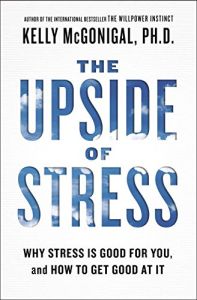Join getAbstract to access the summary!

Join getAbstract to access the summary!
Kelly McGonigal
The Upside of Stress
Why Stress Is Good for You, and How to Get Good at It
Avery, 2015
What's inside?
Change your mind-set to transform stress from an affliction to an advantage.
Recommendation
According to conventional wisdom, stress is a killer – a Pandora’s box of threats to the mind and body. Stanford University psychologist Kelly McGonigal offers a rare contrarian look at stress based on new research that changed her mind about its impact. She disputes overblown warnings about stress’s toxicity and cites studies showing that pressure harms only those people who believe it harmful. By contrast, those who embrace stress and use it to fuel their efforts are happier, healthier and more productive. Stress stimulates physical and neurological changes that boost energy, confidence and empathy, all traits that McGonigal brings to her work. She engagingly describes dozens of paradigm-smashing studies, relates stories of how embracing stress transforms lives and offers practical advice on reworking your relationship with stress. getAbstract recommends her reassuring and useful take on one of life’s challenges to harried entrepreneurs, managers, performers, students, parents and emergency workers.
Summary
About the Author
Kelly McGonigal, PhD, the former editor in chief of the International Journal of Yoga Therapy, teaches at Stanford University. She also wrote The Willpower Instinct and Yoga for Pain Relief.
























Comment on this summary